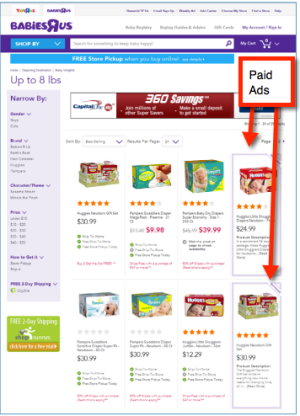For Product Brands, Consider Paid Search Ads On Retailers’ Sites Instead
Last year, Google made what was to some a surprising announcement: its previously free Google Product Search would become Google Shopping, which would ask a fee of product brands and retailers that wanted to be included in new Product Listing Ads. I can’t say that I disagree with Google’s decision. The company has hit on […]
Last year, Google made what was to some a surprising announcement: its previously free Google Product Search would become Google Shopping, which would ask a fee of product brands and retailers that wanted to be included in new Product Listing Ads.

I can’t say that I disagree with Google’s decision. The company has hit on a solid way to increase both its revenue and its visibility as a retail platform, and the shift to pay-to-play has been considered successful — particularly for Google, but for e-commerce retailers as well.
It’s less beneficial to product brands.
Shoppers get on Google and other search engines to figure out where to buy something. When the product brand already won the consumer’s consideration, does it necessarily make sense for the manufacturer to pay more to compete against its own channels? Or is the next dollar better spent competing against other product brands?
What To Buy Vs. Where To Buy
That boost in the competition against other product brands can take place on the retail sites themselves, where shoppers are making that “what to buy” decision — where they can find the pictures, detailed descriptions, specs, etc. They may end up going back to Google Shopping to figure out which retailers has the best price on that item, but they’ve made up their mind on what to buy.
See more of my column on paid search ads on retailer sites, over on Marketing Land.
Contributing authors are invited to create content for Search Engine Land and are chosen for their expertise and contribution to the search community. Our contributors work under the oversight of the editorial staff and contributions are checked for quality and relevance to our readers. The opinions they express are their own.
Related stories
New on Search Engine Land